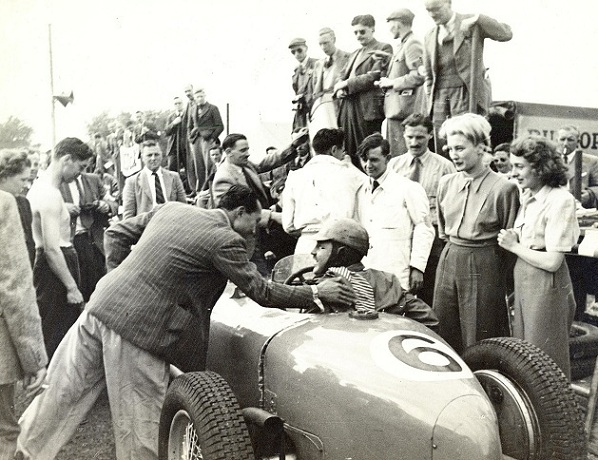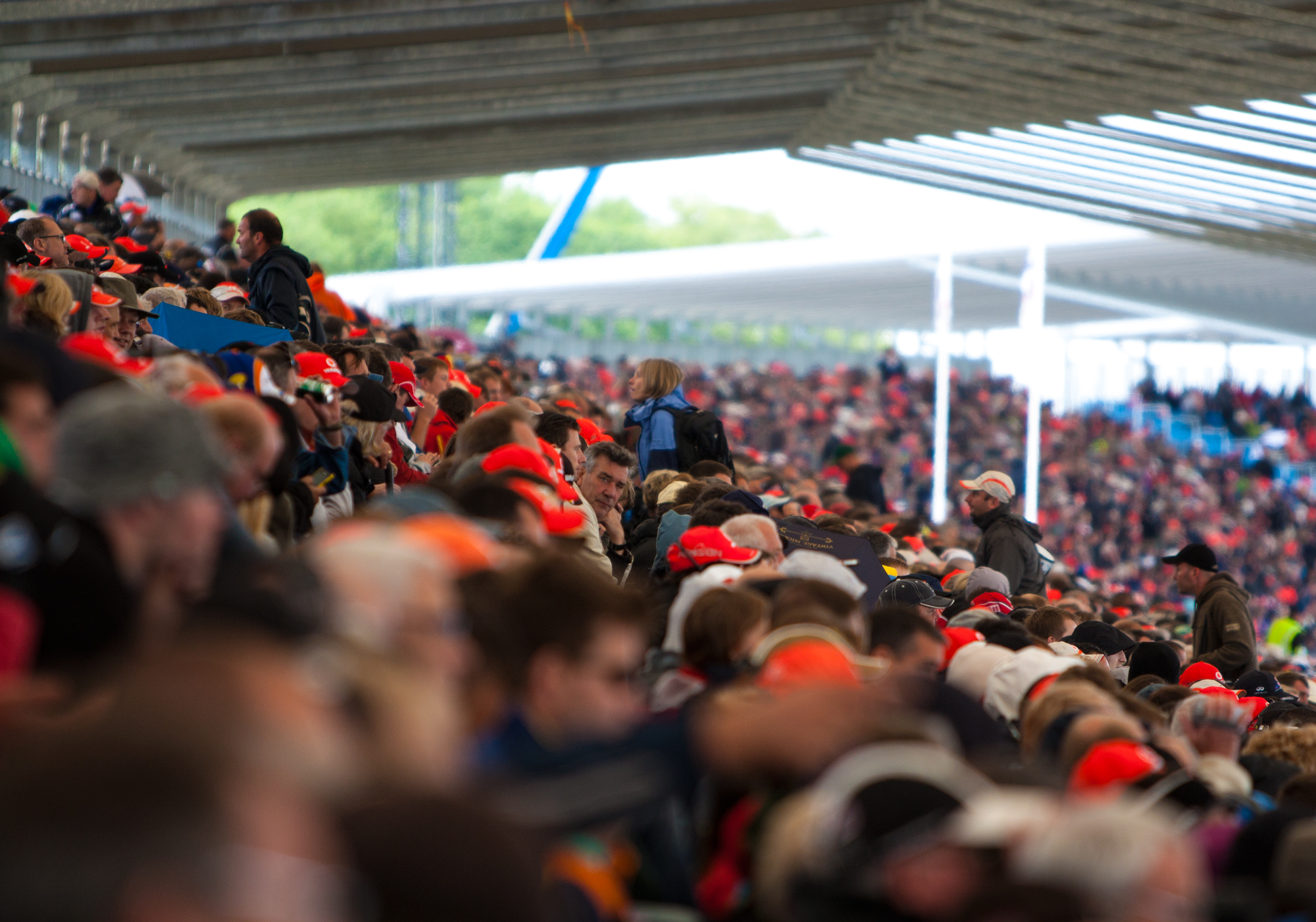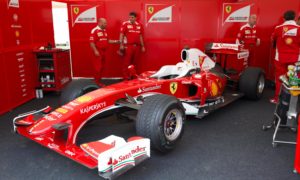The conclusion of the German Grand Prix proved to be a bitter pill for many, but one which had to be swallowed.
Much has been made of Ferrari’s decision to move Felipe Massa aside to allow Fernando Alonso to win the German Grand Prix.
Some have called it unsporting and have hurled abuse at both the Spanish driver and his Italian team.
Others have focused on the psychological damage of the call on Felipe Massa, who was forced to concede his position for the good of the team’.
The controversy centres around Article 39.1 of Formula One’s Sporting Regulations, which states that: “Team orders which interfere with a race result are prohibited.â€
From merely a glance it can clearly be seen that Ferrari is guilty-as-charged. But with this rule open to manipulation and various interpretations, should it ever have been implemented in the first place?
Although it is never pleasant to see a Grand Prix decided in such fashion, with Massa making the switch in the most undignified of ways, it was indeed nothing more than an obligatory evil and one which is not new to Formula One.
Indeed Grand Prix racing has always been focused around the team itself, with the achievements of the driver taking a secondary role.
In fact, it was not until after the sport fell into the clutches of the growing world of television, that the individual characters and their pursuit for glory really took centre stage.
The only team to survive from the previous era was Ferrari, and it is clear to see that it still allows these values to influence the way it goes racing.
Indeed Ferrari’s history stretches back to a period where team orders were a natural occurrence. Although each team had a driver pool, there was always a figurehead’ whom the rest were subordinate to. Therefore, each competitor understood that they were not merely racing for themselves, but to make sure that their employer achieved the best possible result.
This can clearly be seen before the inception of the current world championship where in the Italian Grand Prix of 1935 at Monza, the great Tazio Nuvolari battled his way to second place behind the Mercedes at the expense of his team-mate, Rene Dreyfus.
With Nuvolari’s own car having blown a piston as it passed the pits, the Frenchman gave up his own for his team leader.
Such acts continued after the war, as Grand Prix racing was amalgamated into the single world championship that continues today.
Without them, Juan Manuel Fangio would not have won his fourth world title in 1956, when Ferrari team-mate Peter Collins, also in the running for the title, gave his car to the old man’ during the season finale at Monza – denying the Maserati of Stirling Moss.
Although these traditions have been somewhat buried under the pantomime conjured up during the sport’s growth in worldwide popularity, they still run deep throughout the majority of the paddock and continue to be practiced in one form or another.
Those who feel for Felipe Massa are quick to forget that he has also received such generous treatment in his own pursuit of the title.
In the Chinese Grand Prix of 2008, Massa’s team-mate Kimi Raikkonen was forced to surrender his second position to the Brazilian for the good of the championship – despite having been the only driver to have kept up with the eventual race winner, Lewis Hamilton.
Certainly, Raikkonen was mathematically out of the championship by this stage, but that is not to say that Ferrari should have waited until Massa was in a similar position before it forced him to support his team-mate. After all, every race offers the same number of points as the last, and if Ferrari can find a way to propel Alonso back into the title battle, then the eight points gained in Hockenheim could make all the difference, come Abu Dhabi.
Furthermore, the events of Shanghai 2008 were also clearly an infringement of the rules. Why then did the governing body fail to punish Ferrari for this when it quite clearly went against everything mentioned in Article 39.1?
One explanation for this can must surely be the influence of the media, which currently reports from inside the sport’s paddock.
Then, those entrusted to tackle the Formula One’s most pressing issues hardly batted an eyelid and were resigned to the fact that this was merely how a team like Ferrari operated.
However, fast-forward to Sunday and a large number of outlets were baying for blood.
This undoubtedly had a monumental influence on race stewards, who appeared to buckle under this wave of populism and immediately reopened the issue for investigation.
Remember the incident itself happened on lap 49 of the 67 lap of the Grand Prix and at no time did race control issue any sort of notification that the issue was under examination or would be dealt with after the race. Instead, the finish of the race and the subsequent podium procedure and press conference were able to pass as scheduled.
Many are quick to label Ferrari as unsporting, but they aren’t the only entrant to have dabbled with team orders in such a manner.
One example which springs to mind, and contains some of the hallmarks displayed in Hockenheim, is that of Nigel Mansell’s manufactured victory in the 1992 French Grand Prix.
Although the Englishman been fastest throughout the weekend and had begun the race on pole, he was been powerless to prevent his team-mate, Riccardo Patrese snatching the lead at the start.
At this point of the 1992 season Mansell was well ahead in the drivers’ championship, but did not have an unassailable lead. In fact his closest rival at the time was Patrese, who quite clearly still had a mathematical chance of winning the title as the season was only just at the halfway point.
Nevertheless, Patrese was asked by Williams to let Mansell through to victory, as a result of a pre-race agreement – therefore sacrificing his own title ambitions for the good of the team.
In a similar manner to Massa, the Italian was later quizzed about the perceived use of team-orders by the Grove-based operation, but refused to comment on the incident.
But despite this blatant example of manipulation, and the many other occurrences which followed throughout the 1990s, it was not until Austria 2002 when the FIA decided to act.
The decision to force Rubens Barrichello to allow Michael Schumacher through to take the victory was a crushing demonstration of the cold and calculated demeanour which characterised the Todt era at Ferrari – and also one which ended the hopes of Barrichello ever being given the same treatment as his illustrious team-mate.
However, it is impossible to compare this incident to last Sunday’s fiasco, as Ferrari had no need to let Schumacher take the flag. The German was already miles ahead in the title race at the time and would still have gained valuable points on his rivals at Williams and McLaren.
In Hockenheim it was roles reversed as Ferrari was forced to make the switch to keep itself in this year’s title hunt. After a faltering start the team knew that Alonso had to collect maximum points to close in on Hamilton at the top of the standings.
Ferrari clearly had these points in consideration when its team management elected to make the switch – or why else would they have gone through with it?
Remember whilst Ferrari was fined $1 million in 2002 for ‘bringing the sport into disrepute’, largely thanks to the antics of its drivers on the podium, the actual switch was completely legal – albeit unsavoury.
In the aftermath, the FIA’s decision to outlaw team orders was nothing but a knee-jerk reaction, and one which was not fully thought out.
The decision was unquestionably the wrong one, as none of the teams actually stopped using such measures.
In fact, since its inception, the rule has somewhat made a mockery of the sport’s integrity, with teams having merely mocked the general public by influencing races through coded messages or meetings behind closed doors.
Fans were clearly unhappy with Ferrari’s decision and questioned the point of spending large portions of their disposable incomes to watch something which was already “fixedâ€. But, at the same time, the only difference between this incident and those previously is that it was conducted in the open.
However, although nonsensical, the rule is still there and it is clear that Ferrari must be held accountable.
But, while this may be the case, does the FIA really have a leg to stand on if its World Motor Sport Council decides to prosecute Ferrari?
Although it is clear for all to see, there is no real substantial evidence to suggest that team orders were used – not as long as Felipe Massa maintains that the decision was always in his hands.
If the FIA do find Ferrari guilty then much of the decision will be purely based on the influence of outside sources. If race stewards had felt the incident to be punishable then why did they not decide to review it sooner, instead of waiting until after the race itself?
And how can you clearly define team orders anyway? Surely the decision to penalise Ferrari further would mean that the governing body would have to take further measures to ensure that team orders were outlawed.
But how far could such a clampdown go? What can and cannot be deemed as team order or something which influences the result of a race weekend?
Surely allowing your team-mate past on track is not too dissimilar to deciding which driver gets the newer part bolted on to their car or who is be first to pit. Although such actions may have different outcomes, they still can fall under the category of team orders and have an impact on the race result.
For the good of the sport, the FIA would be best to abolish Article 39.1 as it is merely unworkable and will never be adequately policed.
Any attempt to widen the ban on team orders would simply result in the governing body digging a bigger hole for itself and a costly one at that.
On a final note, anyone who is still believes that team orders have no place in modern motorsport, should take a look around at the rest of the FIA’s prestigious championships.
While Ford and Citroen constantly use team tactics to gain the upper hand on one another in the World Rally Championship, the likes of Seat and Chevrolet also employ various measures in World Touring Cars.
Like Formula One, team orders have always been part and parcel of these championships and could not operate without them.
But such a trend actually runs much deeper and is visible throughout many other forms of sport.
Sunday also saw Alberto Contador secure his third Tour de France title a feat which would have been much harder had it not been for the assistance of his Astana team-mates, who helped set the pace of the peloton as well as completing a whole host of other tasks.
Yet whilst one Spaniard was praised for his efforts on the road, the other was condemned for his part in a controversy which so clearly should never have become an issue in the first place








